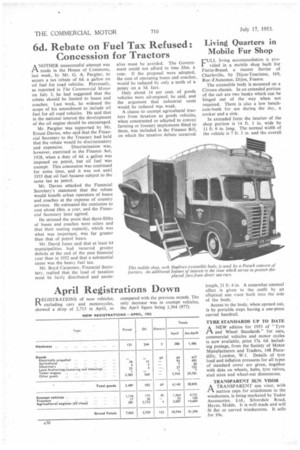6c1. Rebate on Fuel Tax Refused: Concession for Tractors
Page 32

If you've noticed an error in this article please click here to report it so we can fix it.
ANOTHER unsuccessful attempt was made in the House of Commons, last week, by Mr. G. A. Pargiter. to secure a tax rebate of 6d, a gallon on oil fuel for road vehicles. Previously, as reported in The Commercial Motor on July 3, he had suggested that the rebate should be limited to buses and coaches. Last week, he widened the scope of his amendment to include oil fuel for all road vehicles. He said that in the national interest the development of the oil engine should be encouraged.
Mr. Pargiter was supported by Mr. Ernest Davies, who said that the Financial Secretary to the Treasury had held that the rebate would be discriminatory and expensive. Discrimination was, however, exercised in the Finance Act, 1928, when a duty of 4d. a gallon was imposed on petrol, but oil fuel was exempt. This concession was continued for some time, and it was not until 1935 that oil fuel became subject to the same tax as petrol.
Mr. Davies attacked the Financial Secretary's statement that the rebate would benefit urban operators of buses and coaches at the expense of country services. He estimated the remission to cost about am. a year, and the Financial Secretary later agreed.
He stressed the point that three-fifths of buses and coaches were oilers and that their seating capacity, which was what was important, was far greater than that of petrol buses.
Mr. David Jones said that at least 64 municipalities had incurred greater deficits at the end of the past financial year than in 1952 and that a substantial cause was the heavy fuel tax.
Mr. Boyd Carpenter, Financial Secretary, replied that the load of taxation must be fairly distributed and anom
alies must be avoided. The Government could not afford to lose am. a year. If the proposal were adopted, the cost of operating buses and coaches, would be reduced by only a tenth of a penny on a 3d. fare.
Only about 14 per cent. of goods vehicles were oil-engined, he said, and the argument that industrial costs would be reduced was weak.
A clause to exempt agricultural tractors from taxation as goods vehicles, when constructed or adapted to convey farming or forestry implements fitted to them, was included in the Finance Bill, on which the taxation debate occurred.




















































































